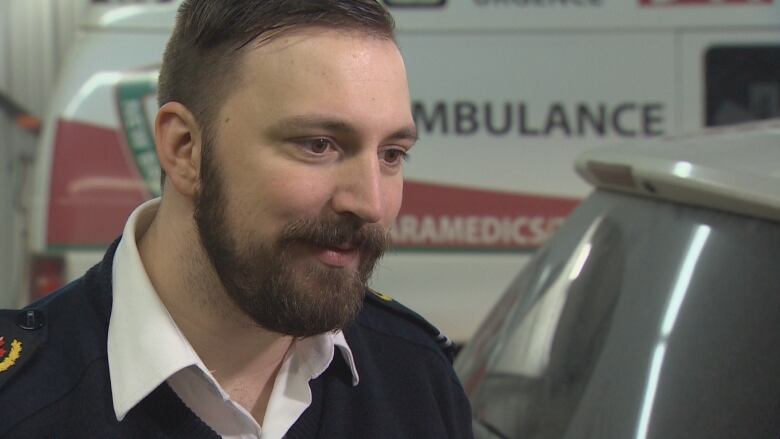Advanced care paramedic program growing in New Brunswick
Pilot program has expanded, staff nearly doubled

Patrick Pickard returned to New Brunswick, his home province, in 2013 after training and working as an advanced care paramedic on Prince Edward Island.
But Pickard's additional expertise in providingfrontline care before patients reach the hospital was of no use in New Brunswick. In fact, it was against the law.
Advanced care paramedics in New Brunswick weren't able to use their training in the field because the province was the last remaining jurisdiction in North America that didn't employ the specialists.
"Sad, I guess, would be the proper word," Pickard said. "It was disappointing to know you could do more, but you weren't allowed to."
But that changed almost two years ago, when the province rolled out a new pilot program. Ambulance New Brunswick announced in April 2017 it had hired six full-time and 10 casual advanced care paramedics in Bathurst, Moncton and Saint John.
The advanced care paramedics possess a larger scope of abilities and provide additional support to ambulances responding to calls requiring more intensive care, according to the province.

The pilot program expanded a year later to include Fredericton, where Pickard now works as an advanced care paramedic.
"Now I can give a lot more medications,"Pickardtold CBC News. "I can do a lot more procedures. I can help the patients quite a bit more than I was before."
Immediate difference
Mere days into his enhanced role, the difference became clear to him.
"We had a car accident, a major car accident, and I was able to give a medication where it helps the clotting factor, so it would help them not bleed out. That's where I started really feeling good."
According to Medavie Health Services, the company that runs Ambulance New Brunswick, the larger scope of practice includes 19 additional medications, electrical therapy, advanced airway management, sedation, seizure control and various pain management options.

Medavie said that in the first 315 days of the pilot project before it expanded to the capital city about 1,515 of the 4,333 patients assessed required interventions or medications from an advanced care paramedic.
The company said the pilot was expanded and made permanent as a result of its success.
Now, 28 advanced care paramedics are employed in New Brunswick. They are paid an average of $3 more an hour.
Serving urban areas
Pickard drives alone, in a separate vehicle from the paramedics. Dispatch sends him to scenes where he could be of most use. Usually, the advance care paramedics operate within a 20-minute radius, but they can be called to assist in rural areas.
"Typically, the urban areas are more busier, so you will get more calls and you will get more people that you can benefit," he said.
"But on the other side of the coin, with the rural areas, someone that does need that help benefits from it more because they're further away [from a hospital]. Which is why they built it the way that they did, so that we can go meet up with them halfway to the hospital."
With files from Catherine Harrop












_(720p).jpg)


 OFFICIAL HD MUSIC VIDEO.jpg)
.jpg)



























































































